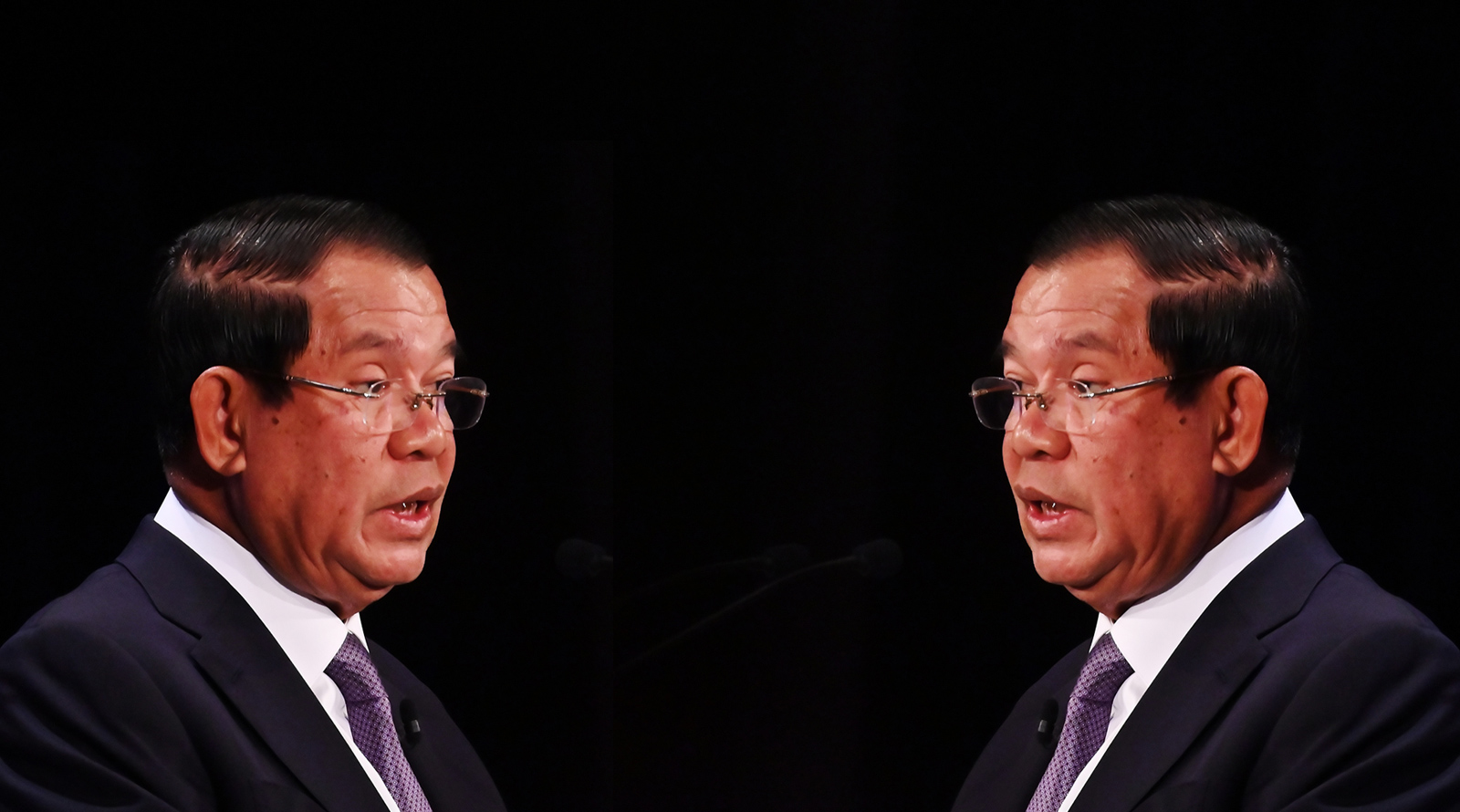Sam Rainsy is trying to set the record straight.
Though his thoughts are set on the politics of home, Rainsy is now far off in Paris, where he’s lived in self-exile for the past five years. After a failed attempt to return to Cambodia in November, he was insistent in a recent call to the Globe that his much-hyped campaign was not a futile effort, but in fact an orchestrated demonstration of the fear and weakness of prime minister Hun Sen.
“I showed that the [Cambodia National Rescue Party] was not dead,” Rainsy said of his political party, which was banned in November 2017 by a Supreme Court ruling. “Hun Sen banned the party on paper. His propaganda, he said CNRP, my party doesn’t exist anymore, it’s dead, Sam Rainsy is finished. But I proved to the country: If the party is dead, why is he so afraid of a dead party?”
In the nearly hour-long call, Rainsy pitted himself against Hun Sen in a political showdown for the ages. The outreach from the opposition figure was unexpected, and he said he wanted to rebut a Globe article published in November just after his return had fallen short.
Even months removed from the news cycle, there was a certain timeliness to the phone call. In mid-February, the EU had just began the pullback of its lucrative Everything But Arms (EBA) trade deal, made amid what it described as a worsening political and human rights environment in Cambodia. While on the domestic front, former CNRP president Kem Sokha was then weeks into a prolonged trial on treason charges that many have condemned as politically motivated.
Still, talking about Rainsy’s return campaign so many months after the fact felt anti-climatic. At the time, the tension had thickened the air, largely thanks to anticipation among the Cambodian public and a full-throated response from the government.
“Attack them wherever you see them – you don’t need arrest warrants at all”, Hun Sen instructed military personnel in early October ahead of Rainsy’s return, referring to CNRP members returning from exile.
But when push came to shove, Rainsy made it only as close to home as Malaysia. He’d been turned away from transit by the Thai government, which refused to allow him to pass through on his way to Cambodia.
For his part, Rainsy argues that Hun Sen showed his weakness by scrambling troops and military police in anticipation of his return on Cambodia’s independence day.
But CNRP operatives in the country remain firmly under the CPP’s thumb, stuck in the courts on vague charges in the aftermath of their dissolution. Kem Sokha is certainly the most prominent of these. He is now facing an extended trial as the CPP and state prosecutors accuse him and his party of fomenting a “colour revolution” and plotting to “topple” the government.
Though Rainsy now claims victory over his old adversary Hun Sen on grounds such as media attention and international solidarity-building, he says he really just wants to return to Cambodia to face whatever legal challenge the prime minister’s government provides.
“Put me on trial in place of Kem Sokha”, he told the Globe. “The person who was most responsible was me, in my capacity as president. Don’t prosecute Kem Sokha, prosecute me.”
But unless he finds a way to sneak into the country, an option he ruled out, that’s an unlikely outcome.
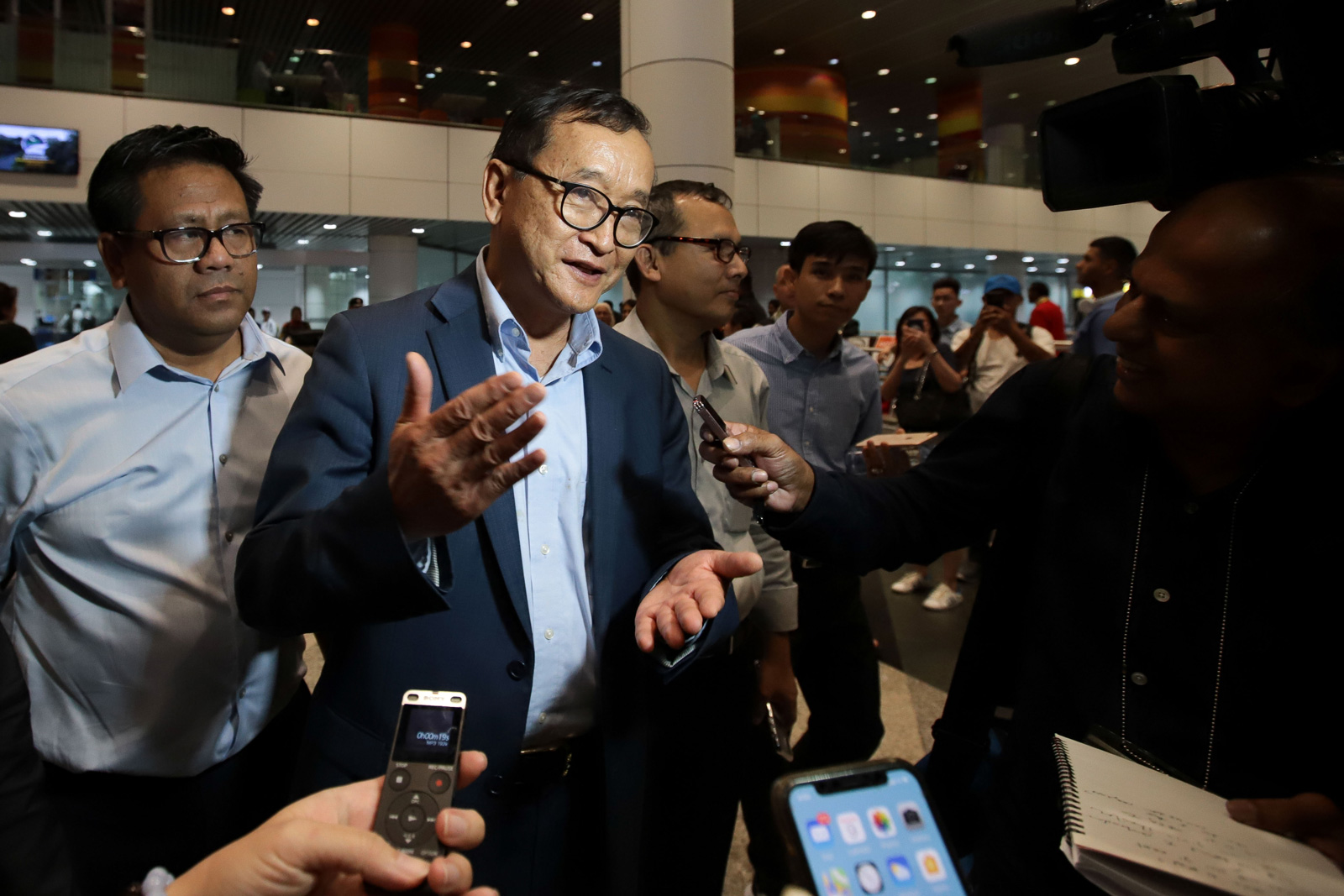
The CNRP was the biggest single threat to the rule of Hun Sen and his Cambodian People’s Party (CPP), which has for three decades held sway over Cambodia. The party very nearly wrested control in 2013 in a fiercely disputed and irregularity-prone national election that sparked months of popular protest.
But with the largest opposition group officially disbanded in 2017, it’s unclear what path, if any, Cambodia’s current political opposition has to exercise any real challenge to CPP hegemony. Under the ratcheting-up of the government’s political and legal pressure, the Cambodian opposition appears dormant at best.
“In short, it’s not looking very good,” said Sebastian Strangio, journalist and author of Hun Sen’s Cambodia. “It’s unclear where exactly a credible opposition will emerge from, unless the CPP loosens the shackles and allows CNRP to reemerge in some form.”
The 19 parties that now jostle in opposition have preemptively tailored their own communications to focus on “constructive” feedback for the government, rather than any direct challenge of its methods or legitimacy.
There’s no need to topple the government or change the regime, but we can give them our recommendations and make reform step by step
Soksovann Vatana Sabung, Khmer Rise Party leader
But despite this wealth of opposition parties, they hold no seats in the National Assembly, making Cambodia today a de-facto one-party state.
The closest they can get to political influence until the 2022 commune elections and the 2023 national election are held is within the set boundaries of the Supreme Consultative Council (SCC), a body formed under the prime minister’s auspices following the controversial 2018 election in which the CNRP were banned.
According to Cambodia’s National Election Committee, the result of the general election 2018 led to a sweeping victory for the Cambodian Peoples Party, CPP.
| Party | Votes | Seats |
| Cambodian People’s Party | 4,889,113 | 125 |
| FUNCINPEC | 374,510 | 0 |
| League for Democracy Party | 309,364 | 0 |
| Khmer Will Party | 212,869 | 0 |
| Khmer National United Party | 99,377 | 0 |
| Grassroots Democracy Party | 70,567 | 0 |
| Beehive Social Democratic Party | 56,024 | 0 |
| Khmer Anti-Poverty Party | 55,298 | 0 |
| Khmer United Party | 48,785 | 0 |
| Cambodian Nationality Party | 45,370 | 0 |
| Cambodian Youth Party | 39,333 | 0 |
| Dharmacracy Party | 29,060 | 0 |
| Khmer Economic Development Party | 23,255 | 0 |
| Khmer Rise Party | 22,002 | 0 |
The SCC, totalling 30 representatives from 15 parties, now meets in the prime minister’s Peace Palace and reports directly to Hun Sen. While its members have conducted high-profile investigations of land grabbing and corruption cases, the council has no authority to pass or enforce law, with its recommendations dependent on the CPP for endorsement.
For many in the council, public talk of reform is limited to the personal, rather than systemic, and though official corruption is called out, there is little mention of the broader CPP-shaped elephant in the room.
Soksovann Vatana Sabung is the leader of the Khmer Rise Party (KRP), which he formed in 2018 ahead of the national election, finishing 14th in terms of votes.
A businessman who maintained a fiery Facebook presence before his entry into politics, he has since made a rapid ascent in the Cambodian political scene. Sabung, who also goes by the name William Guang, now serves as the rotational president of the SCC and conducts business for the KRP in their freshly renovated Phnom Penh-headquarters decorated with ornate, gold-painted accents.
It was there that he took a meeting with the Globe wearing a tailored suit and shiny wristwatch, cutting a sharply dressed figure as he held court behind his desk.
In conversation, Sabung switched between his capacity as acting KRP president and the SCC, the latter of which he promoted as a direct line for reporting corruption to Hun Sen. He intends to campaign for parliament in 2023, but, for now, Sabung doesn’t see an issue with the general makeup of the Cambodian government.
“We don’t need to change the regime right now”, he said, with fellow party official Sok Lim translating. “There’s no need to topple the government or change the regime, but we can give them our recommendations and make reform step by step.”
The SCC has been the primary forum for these recommendations, granting smaller opposition groups like his with a rare opportunity to publicly demonstrate against official malfeasance. But despite its focus on corruption and its public investigations of government officials, the body is derided by critics as a means to legitimise the CPP’s single-party rule.
Strangio doesn’t believe the council is a legitimate check on CPP power, suggesting it was an element of a democratic facade “consistent with authoritarian states around the world”.
“You’re not trying to unify everyone under a strict, unified party, but you’re bringing people under the rough aegis of CPP and Hun Sen’s leadership,” he said. “You accept the principle of CPP leadership, Hun Sen’s leadership, and there’s room for different party identities to exist, mostly in meaningless form.”
Not all of Cambodia’s opposition parties joined the council, and those on the outside are among its biggest detractors.
The League for Democracy Party (LDP) is one of them. The LDP was founded in 2006 and, led by the sometimes controversial Khem Veasna, competed in its first national election two years later. According to the official count, the party is said to have garnered the third-most votes in the 2018 election, in which the CPP took every seat in the Parliament.
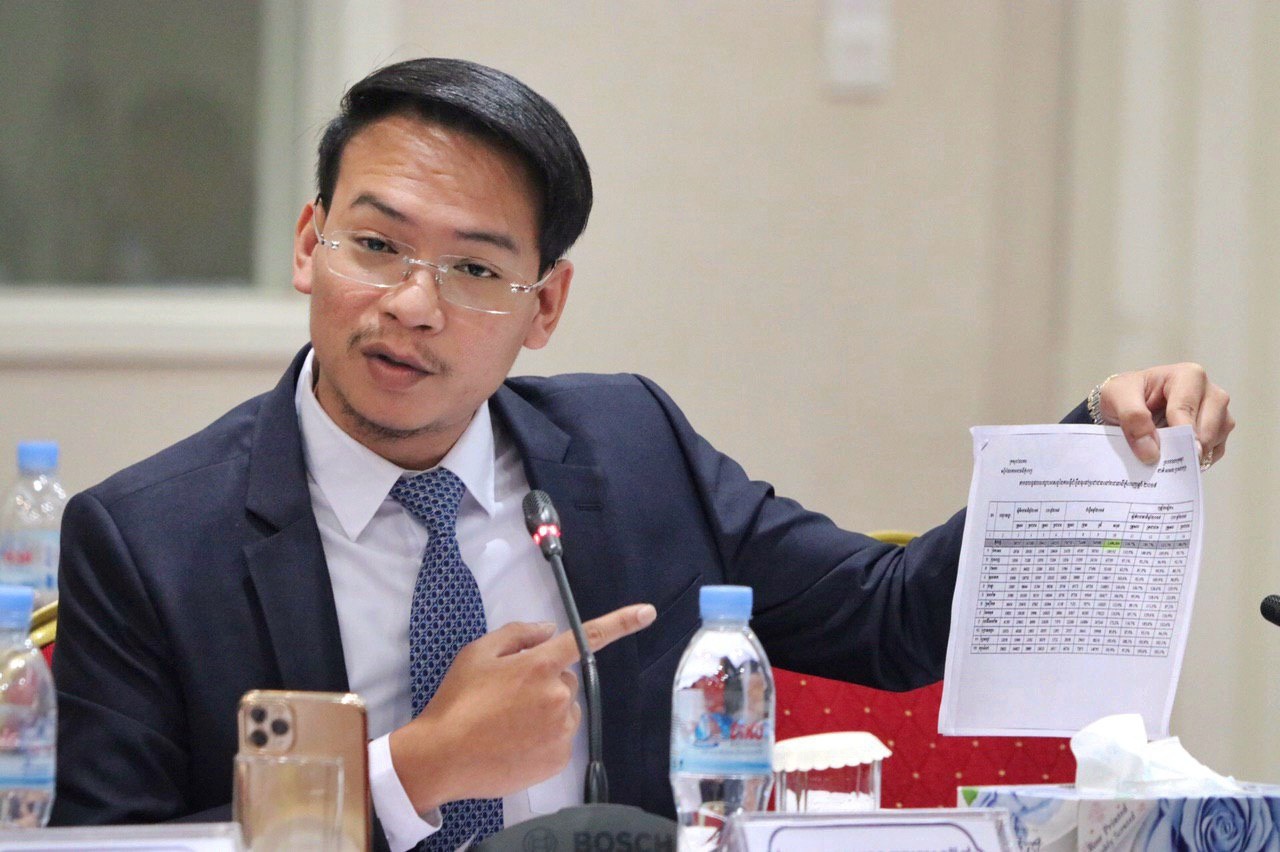
LDP Vice-President E Sangleng and party representative Chhorn Dina dismiss those election results as entirely illegitimate, arguing they won far more than the tally shows. The election isn’t the only thing whose legitimacy they question, and the junior leaders are quick to blast the establishment and opposition – including the SCC.
“It’s a joke council,” Dina said. “They [the CPP] have 125 seats, so what can you do? It’s a puppet opposition.”
The LDP isn’t the only Cambodian opposition group to shun the SCC in favour of direct engagement with voters. Leaders of the Grassroots Democracy Party (GDP), the party of murdered democratic activist Kem Ley, chose to ignore the SCC as well.
GDP leader Yang Saing Koma, an agronomist and civil society leader before politics, described the organisation’s platform with a broad slate of social welfare goals, such as universal healthcare and improved public schooling. He said the EU’s EBA decision had been regretful for its likely impact on Cambodian workers, but said he understood the motivation and hoped the CPP would cooperate rather than maintain a combative stance.
Koma could also see some positive potential for a body like the SCC if it were truly an independent council working alongside a competitive parliamentary system. But as it was, Koma chose to reject it because the group appeared more like an emblem of a wider “yes-sir” culture to the whims of the prime minister.
“The CPP needs to be open for a more pluralistic society, and they need to learn to work with other parties, different opinions to solve the problems,” Saing Koma said. “We’re [opposition groups] like water coming from different sources, going into one river.”
Others in the civil society share his outlook.
Chak Sopheap is head of the Cambodian Center for Human Rights, a nonpartisan organisation. She wasn’t as harsh in her assessment of the SCC, and even said it could have a positive role to play in the government. Even still, she had little positive to say about the group currently.
“The role of the council is vague and its creation appeared to be a response to the backlash from the [2018] election,” Sopheap said. “It cannot be a substitute for strong and varied political opinions in parliament, nor does it justify our lack of multi-party democracy.”
But SCC members argue their time in parliament has simply yet to come, provided they play by the rules – both official and unspoken ones.
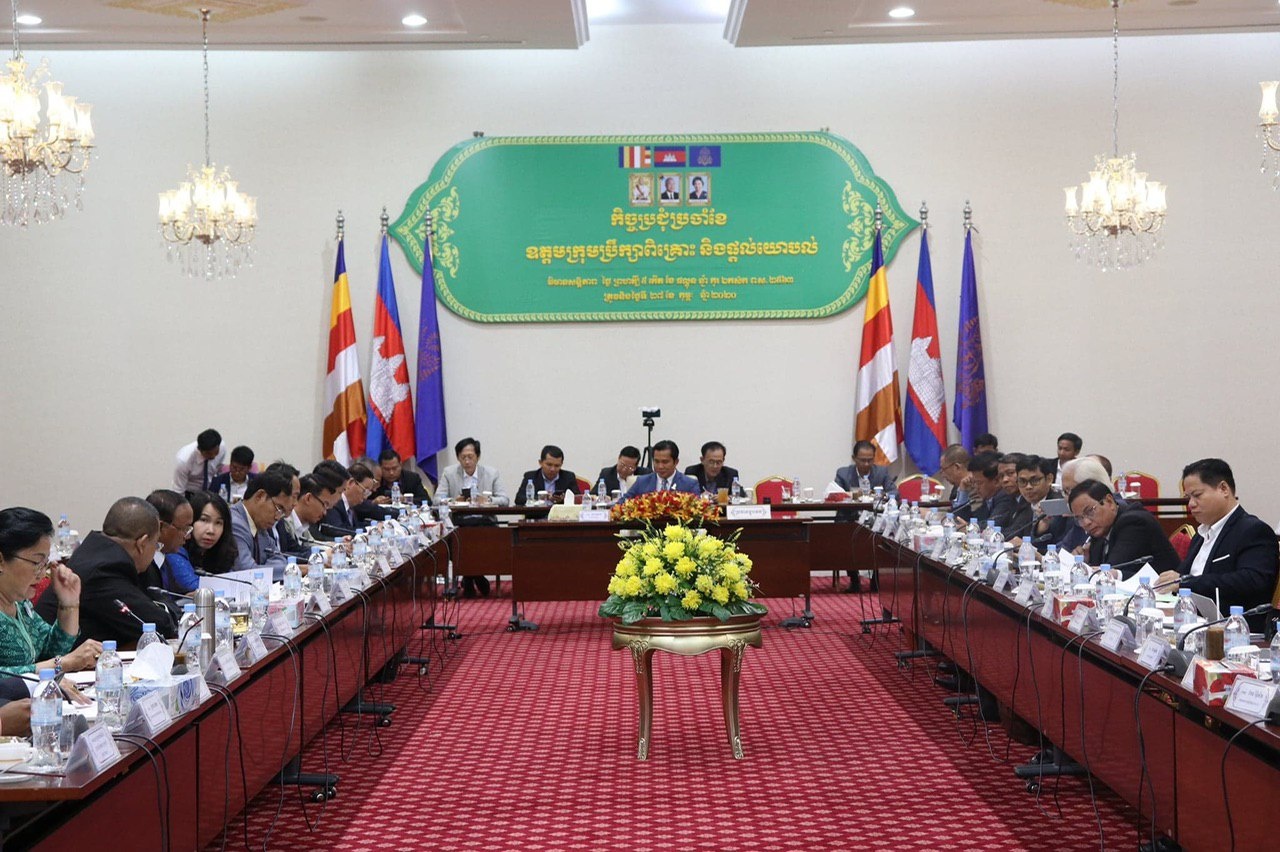
The KRP’s Sabung summarised his main goals as fighting corruption and changing attitudes: first in government officials who “have authority but do not serve the people well”, and secondly among the Cambodian people.
That political education would take place in the bounds of what they described as a specific brand of “Cambodian democracy”, a school of thought they maintained could not be easily compared to other political systems.
“Cambodians, they’re not afraid of talking about politics”, Sabung said, but he added “[our] freedom of political talking is different from the rest of the world”.
The two party leaders also said they did not blame the government for recent mishaps like the partial EBA withdrawal, instead describing the EU’s move as a disappointing attempt at regime change by outside powers.
“We have 100% freedom to be an opposition party, but what we are in opposition is based on constructive ideas”, Sabung said. “When [the ruling party members] are wrong, we give them advice.”
Everyone agrees that there is no democracy without opposition and, in the present situation in Cambodia, there is no opposition without CNRP
Sam Rainsy, CNRP Acting President
While the KRP leaders distance themselves from the CPP, it’s not altogether certain what actually differentiates them in terms of policy vision. Other parties in the council also vow their opposition while maintaining a similar tack as the CPP, or even advancing the government’s political goals.
Pich Sros, 41, is the head of Cambodian Youth Party. Sros has been involved in politics for much of his adult life, spending his first years hopping between parties looking for a fit. That early trajectory put him in contact with the CNRP and Kem Sokha, with whom he worked before parting ways.
He eventually went as far as denouncing his former colleagues and in 2016 filing the initial complaint to dissolve the CNRP, suggesting to local media he’d been disappointed with the party’s work.
“They haven’t won an election but they’re asking the government to step down”, Sros said, referring to the 2013 national election when the CNRP won 55 seats in the National Assembly, compared to the CPP’s 68.
Recently, he echoed the line of state prosecutors and CPP officials, telling the Globe that he believed prior to Sokha’s arrest he and the CNRP were attempting to “topple” the Cambodian government with the help of foreign advisors.
Like the KRP’s Sabung, Sros also alluded to issues of sovereignty and foreign meddling in the recent EBA decision.
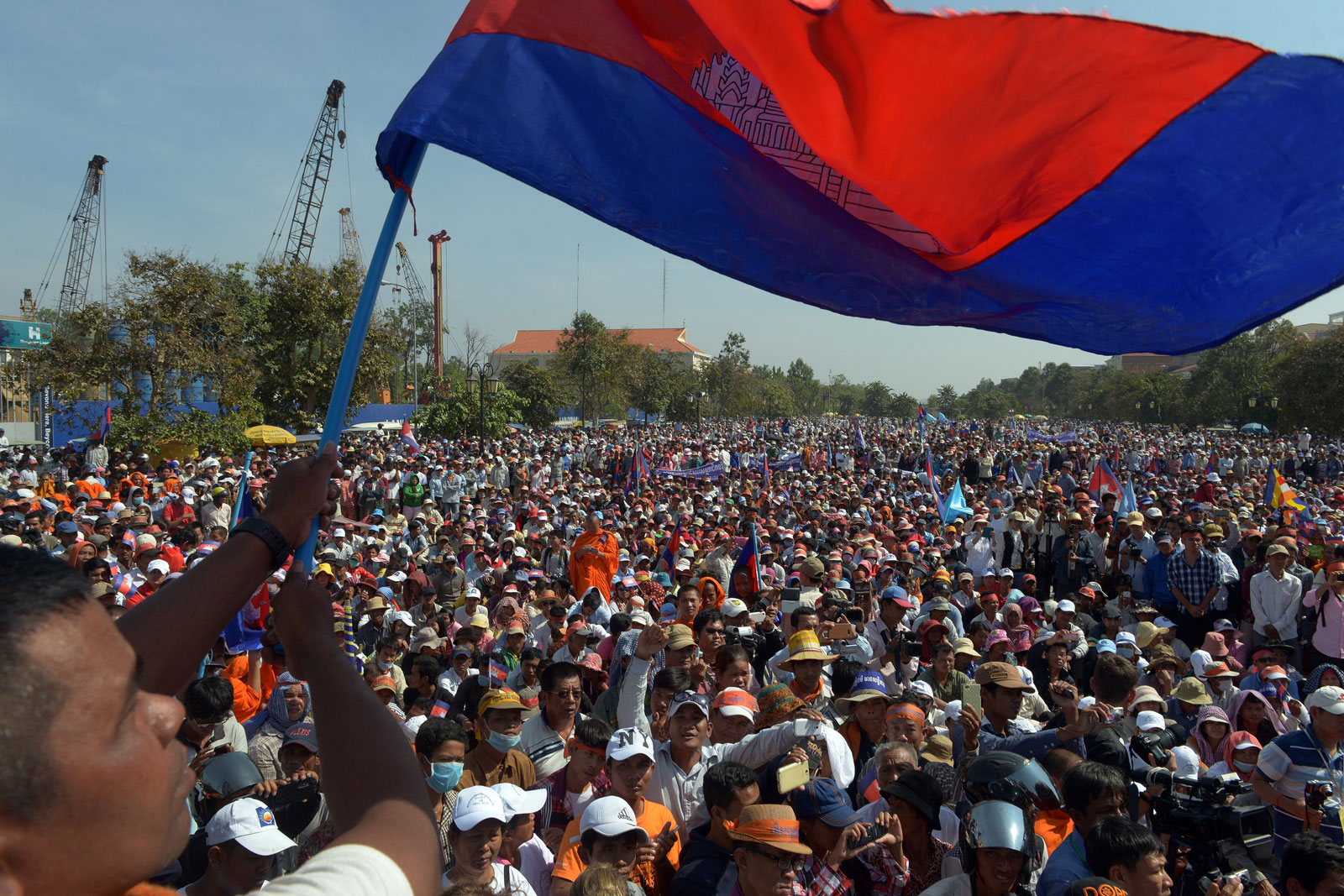
Today, CCHR head Sopheap said her organisation has no special interest in politics beyond a vision of the country where people “enjoy their fundamental human rights and [are] empowered to participate in democracy.”
But that’s not what she sees right now.
“The current situation in Cambodia is not conducive to rebuilding our democracy or encouraging the protection of human rights”, Sopheap said, pointing to what she described as a dramatic erosion of the civil society over the past three years.
She also dismissed the notion of a country where speech is free or where politics could be practiced in good faith. Sopheap said recent years have instead been marked by state attacks on independent media, judicial harassment of journalists and human rights workers and restrictions on civil society groups.
“This has fostered a climate of fear in which the public are scared to express their political opinion, affiliate with a political party or speak out against the government,” she said.
It’s unclear now what, if anything, could empower the Cambodian opposition in a system clinched by just one party.
While both Sros and Sabung spoke against the EU decision to start rescinding the EBA deal, representatives of the bloc and its allies have explicitly mentioned a lack of real opportunity for opposition candidates as among their reasons to begin the pullback.
In theory, the changes encouraged by the EU would help opposition parties like theirs to compete in open elections. But Hun Sen’s government says it can go on without the preferential trade agreement so long as it has the continued Chinese economic support.
From beyond the confines of the SCC, the LDP leadership was quick to blast the current leadership structure as an undemocratic system looking out only for “sovereignty for the government” in its dealings with the EU, especially with so much at stake for the Cambodian economy.
But Sangleng also had rough words for CNRP figures who long pulled the opposition along and, in his view, had squandered support among the Cambodian people through infighting and nepotism. To his eyes, the CNRP revolved on a form of personalised, vanity leadership that prioritised the status of figureheads like Rainsy at the expense of building a truly powerful movement.
“How can a corrupt knife cut a corrupt thing? It can not”, he said of the embattled opposition party. “They must be replaced.”
The younger leader is now betting that his own party can navigate the pitfalls of Cambodian democracy with more resolve, a future he hopes to win through organising in-person and via the internet. Though he maintains CNRP was once in a position to capitalise on street activity, Sangleng says protesting is too dangerous now.
Love them or hate them, the party of Rainsy and Sokha ran a gauntlet that appears unavoidable for those like Sangleng.
In his hour-long interview, Rainsy said he has no immediate plans to mount another attempt at return. Instead, he is now talking of biding his time and waiting for the ruling party to give way, whether that be through domestic tension, international pressure or both.
The CNRP leader had little to say for Cambodia’s existing field of opposition.
“Everyone agrees that there is no democracy without opposition and, in the present situation in Cambodia, there is no opposition without CNRP.”
